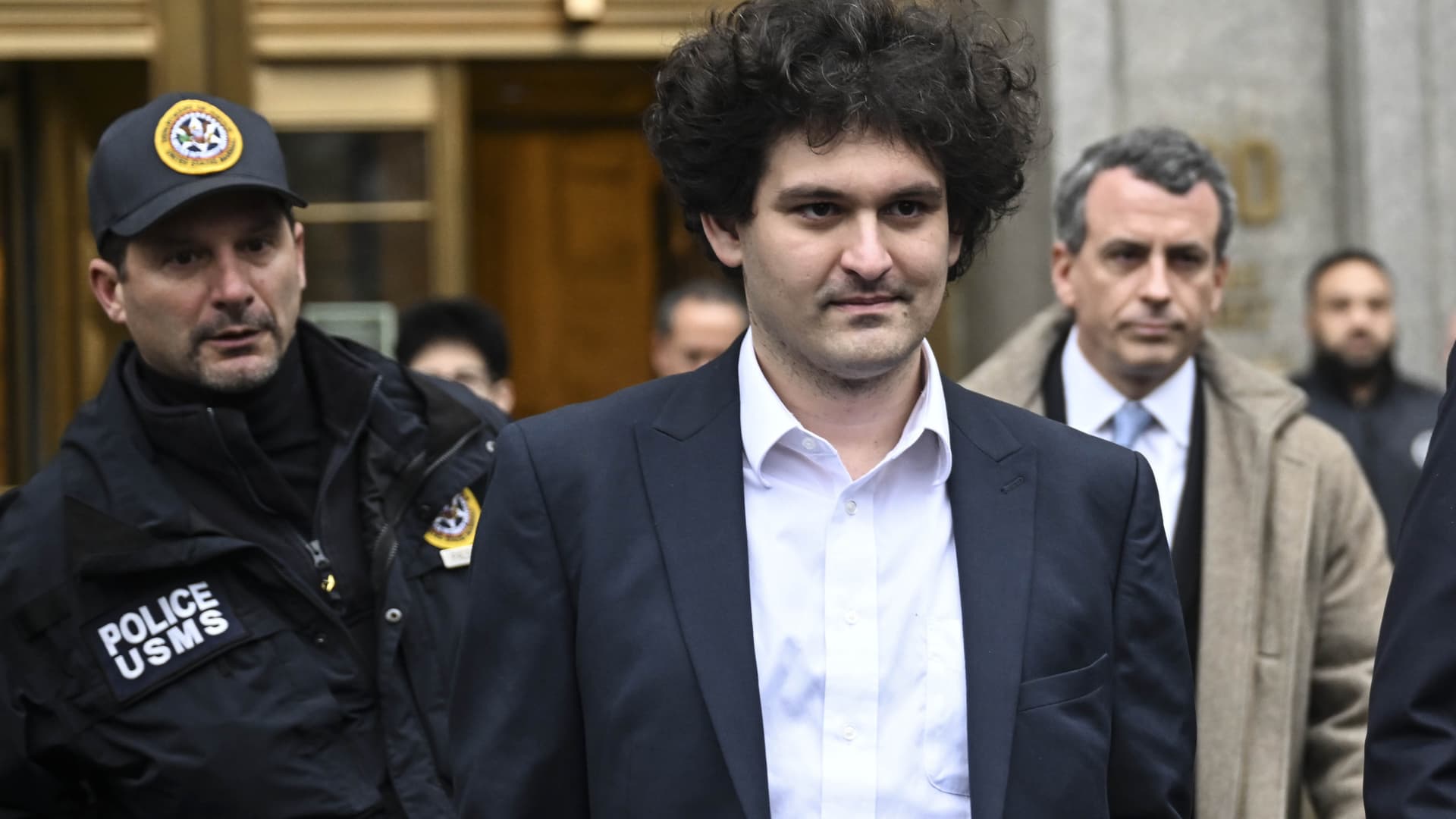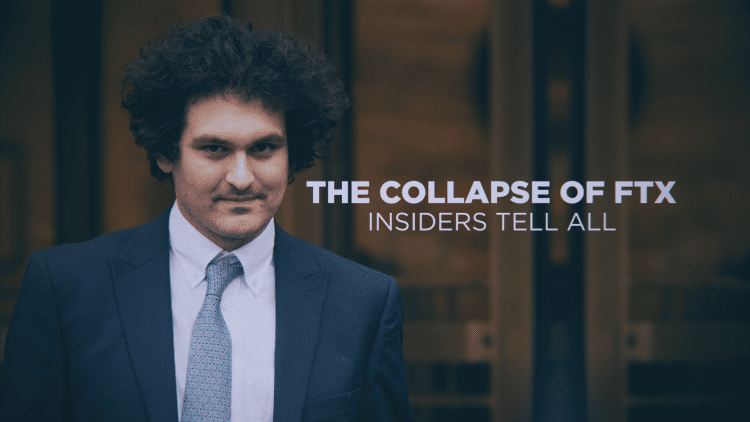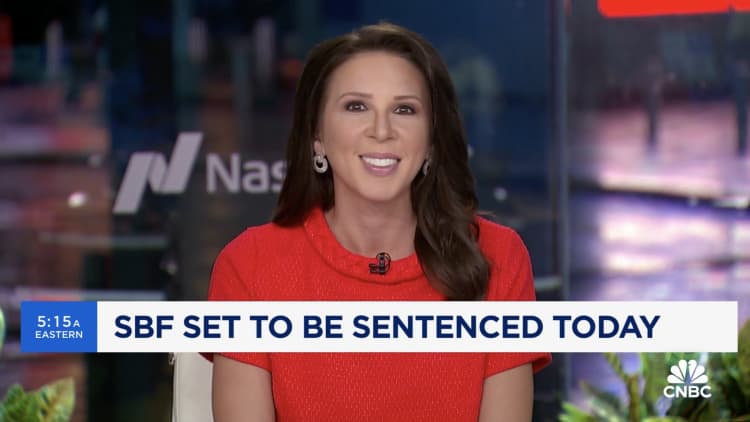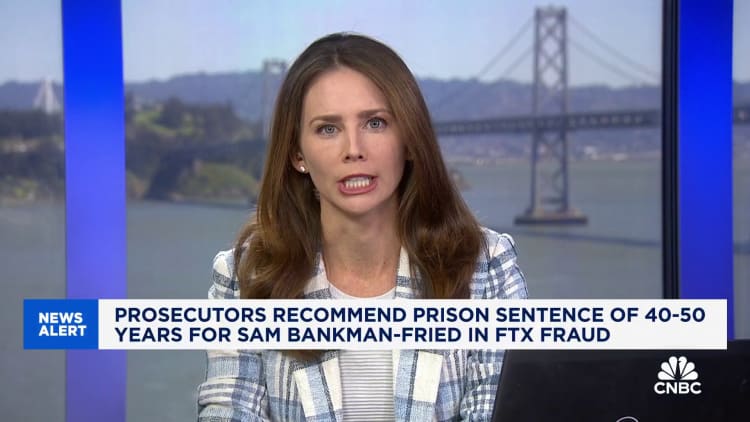Sam Bankman-Fried FTX fraud victim tells judge: 'My whole life has been destroyed'
More than four months after he was convicted on seven charges by a New York jury, Sam Bankman-Fried is set to learn how long he'll spend behind bars.

NEW YORK, US - JANUARY 03: Sam Bankman-Fried leaves the court in New York, on January 03, 2023.
Fatih Aktas | Anadolu Agency | Getty Images
In a letter to the Department of Justice, an FTX customer who lost $4 million when the exchange filed for bankruptcy in 2022 expressed disgust at a circulating narrative that clients of the crypto exchange would ever be made whole.
"I have scraped the docket of scheduled claims and calculated the exact amount stolen," wrote the former FTX customer, whose identity has been concealed by the government. "The total value of customer liabilities is $19,722,911,002.84."

This week, that letter ended up on the desk of U.S. District Judge Lewis Kaplan, who on Thursday will inform FTX founder Sam Bankman-Fried of his prison sentence stemming from his role in the collapse of the exchange. At 9:30 a.m., sentencing proceedings will take place on the 26th floor of the federal courthouse in downtown Manhattan, the same place where a jury found the former crypto executive guilty of all seven criminal counts against him in November.
The victim, who wrote that 30 years worth of savings had been deposited into FTX three months before the exchange collapsed, is part of a last-minute push by prosecutors to sway Judge Kaplan ahead of the sentencing.
"My whole life has been destroyed," the person wrote. "I have 2 young children, one born right before the collapse. Beyond the money, I lost my happiness, my ability to get out of bed, my desire to continue living. My wife is suicidal and depressed."
The same sorts of stories were told during Bankman-Fried's monthlong criminal trial last year. Prosecutors won their case by convincing jurors that Bankman-Fried had stolen at least $8 billion from customers. For some people, that meant financial ruin.
"In its sentencing submission, the prosecution has included moving accounts from FTX's former customers that speak to the devastation experienced by those losing their money, the uncertainty of wondering whether they might ever get any of it back, and dealing with the emotional fallout of being duped," said Yesha Yadav, law professor and Associate Dean at Vanderbilt University. "These victim impact statements can be very powerful."

Bankman-Fried, 32, faces a maximum sentence of more than 100 years in prison, though the government has suggested a sentence in the range of 40 to 50 years. The defense is angling for no more than 6.5 years.
For months, Judge Kaplan has been weighing the appropriate punishment for Bankman-Fried's crimes related to the implosion of his $32 billion crypto empire.
CNBC spoke to former federal prosecutors, trial attorneys, and a mix of lawyers working to defend white collar criminals to get their take on what to expect on Thursday.
Damaging testimony
Bankman-Fried was convicted of wire fraud and conspiracy to commit wire fraud against FTX customers and against lenders to sister hedge fund Alameda Research, as well as conspiracy to commit securities fraud and conspiracy to commit commodities fraud against FTX investors, and conspiracy to commit money laundering.
The defense team has argued that Bankman-Fried's sentence should reflect the potential that FTX customers will be paid back in part or in full. The likelihood of that scenario has increased in recent months thanks to the rising value of cryptocurrencies and other assets FTX owned, such as its stake in artificial intelligence startup Anthropic.
Even as the bankruptcy estate promises to pay customers back, many of FTX's thousands of victims argue that their crypto stakes have been significantly undervalued by the exchange's new leadership team.
"A lot will be said about the loss at the time of the conduct, not the recovery or potential recovery after it was discovered," said former federal and state prosecutor David Weinstein, who now practices as a corporate compliance and white collar defense attorney at Jones Walker. Weinstein said he expects to see a sentence in the range of 30 to 40 years.
Mark Bini, a former state and federal prosecutor and U.S. assistant attorney who specialized in financial crimes, anticipates a sentence of no less than 30 years.
"Probation calculates the guidelines at 110 years," said Bini, who currently represents white collar crypto defendants as part of law firm Reed Smith's On Chain digital asset team. "I think the judge is likely to side with probation and the government on the loss amount and the appropriate guidelines."
Caroline Ellison, former chief executive officer of Alameda Research LLC, arrives to court in New York, US, on Thursday, Oct. 12, 2023.
Bloomberg | Bloomberg | Getty Images
Judge Kaplan, 78, is a veteran of the Southern District of New York and has presided over some of the biggest cases to roll through his courthouse. He showed little patience for Bankman-Fried during the defendant's four days on the stand.
"Unfortunately for SBF, some of his testimony at trial came across as highly evasive, somewhat cold and often contradictory," said Yadav, adding that a sentence of 20 to 25 years could offer Judge Kaplan a way to balance the severity of the crime with a recognition of customer recoveries and the potential for future rehabilitation.
Former federal prosecutor Neama Rahmani described Kaplan as "old school" and predicted a sentence of 20 to 30 years.
Tre Lovell, a Los Angeles corporate law attorney, said the core factors Kaplan will consider will be the extent of the fraud, along with the fact that Bankman-Fried appeared to have lied under oath while showing little remorse.
"The judge isn't going to cut Bankman-Fried a break just because FTX has recovered a lot of funds to offset the amount that customers lost," Lovell said. "The judge is just going to look at Bankman-Fried's conduct at the time he was in charge of the company, not what the company did after he stepped down as CEO."
Bankman-Fried has one last chance to take the stand in front of the judge in order to show some level of contrition and a promise to become a benefit to society.
"If he says he's had a chance to think about what he did and that he's very sorry for misusing the hard-won funds of investors, and that he wants to use his acumen in this field for the public good, then he may walk out with a prison sentence that is south of 20 years," Lovell said. "In court, it's never too late to say you're sorry. But he won't get a big discount on his sentence just for being contrite."
WATCH: Prosecutors recommend a 40-50 year prison sentence for Bankman-Fried


 FrankLin
FrankLin 






























